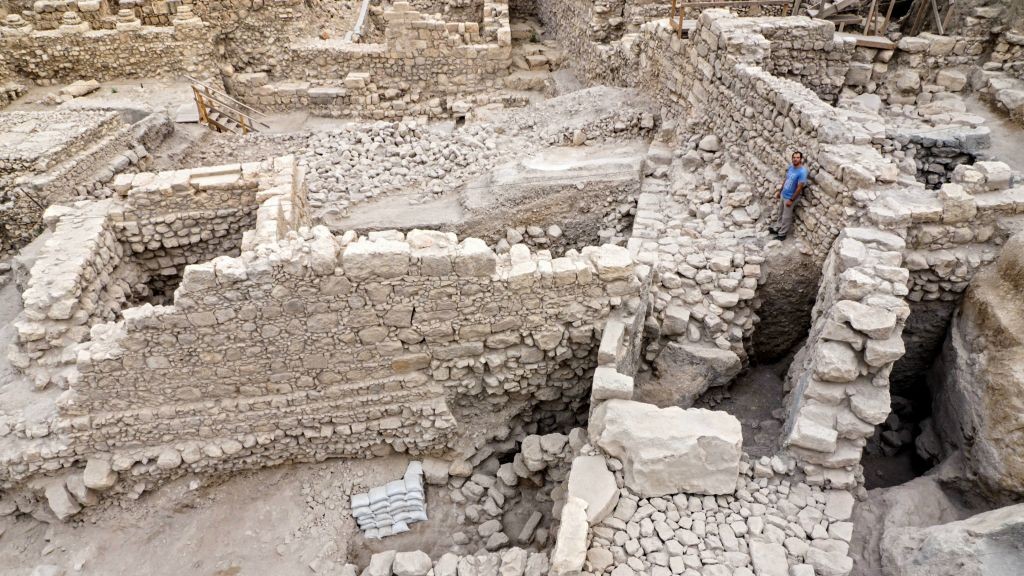The fortress was built 2,000 years ago by King Antiochus Epiphanes, and until now its location has been unknown:
Many thought it stood in what is now Jerusalem’s walled Old City, at spots such as the Church of the Holy Sepulchre or by the hilltop where two Jewish temples once towered and now house the Al Aqsa mosque compound.
But the remains unearthed by the Israel Antiquities Authority and made public on Tuesday (Nov. 3) are outside the walls, overlooking a valley to the south, an area where archaeologists say Jerusalem construction was concentrated under the biblical King David.
Antiochus, who lived from 215-164 BC, chose the spot for the Acra in order to control the city and monitor activity in the Jewish temple, said Doron Ben-Ami, who led the excavation.
The site was buried under a parking lot, and includes coins, sling stones and arrowheads.
The Acra’s location was referred to vaguely in at least two ancient texts – the Book of Maccabees, which tells of the rebellion, and a written record by historian Josephus Flavius.
Historians tell how the rebels, lead by Judas Maccabeus, took back Jerusalem from the Greeks, a victory marked in the Jewish festival Hannukah. But the Acra held out until rebels under Judas’ brother, Simon, later lay siege and forced its surrender.
Read more from the Religion New Services report.
From The Times of Israel:
The site will be opened to the public by the Hanukkah holiday, which this year begins the evening of December 6, the Israel Antiquities Authority announced.
…The dig, which has been ongoing for the past 10 years, also uncovered lead sling stones, bronze arrowheads and stones shot by a ballista, an ancient catapult. The ballista stones were stamped with the image of a pitchfork, the symbol of Antiochus’s reign. Coins found at the spot were dated from the reign of aforementioned Antiochus IV Epiphanes to the reign of Antiochus VII Sidetes, who died in 129 BCE.
The finds were “silent remnants of the battles that took place there in the days of the Hasmoneans,” the priestly family that led the Maccabean rebellion, the archaeologists said.

